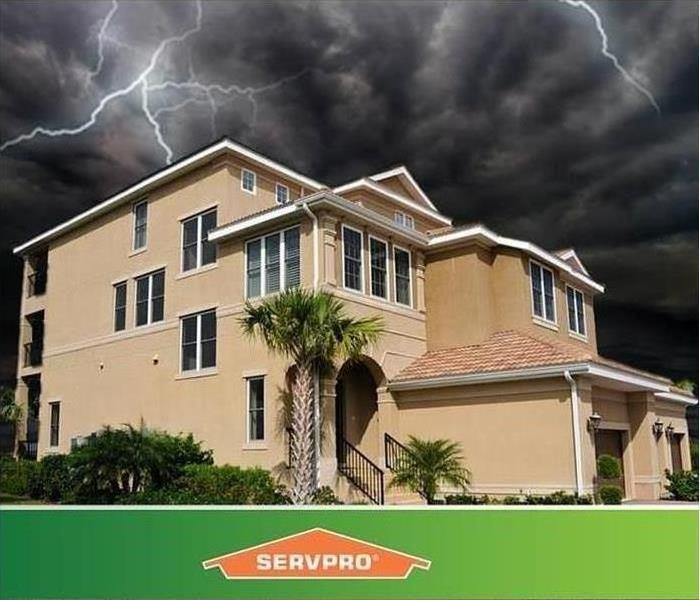Storm Cleanup
5/5/2020 (Permalink)
Across Illinois, storms have been known to cause incredible amounts of damage. Tornadoes, hail, and lightning strikes can all ruin your home in a matter of hours. SERVPRO is here to help. Here are some tips to best prepare your home for everything from blustery winds to one-in-a-million lightning strike.
BEFORE THE STORM, BE PREPAREDMake an emergency kit for your family in the event the power goes out or your home is severely damaged during a storm. Include flashlights, bottled water and non-perishable food, medication, and copies of important documents. You should have enough supplies to get you through a few days. By having a kit ready, you’ll have everything you need close at hand during inclement weather.
Keep a copy of your insurance documents in your emergency kit. If your home is completely destroyed by a tornado or fire, having these papers at the ready could be the difference between immediate rebuilding efforts and months of waiting for a claim.
COMMON STORM PROBLEMS AND HOW TO PREVENT THEM
No one can stop the weather, but you can take steps to reduce potential damage to your home, vehicles, and possessions. The exterior of your home is the most susceptible to damage in bad weather. The easiest way to prevent damage is maintaining the roof, siding, and windows of your house before a storm hits. Check for loose shingles on the roof to keep water and hail out or perhaps consider using impact resistant siding to protect against debris and hail.
Here are some of the most common issues with simple solutions.
- Individual branches or whole trees can be knocked over by wind during storms and tornadoes. The position and angle of the falling tree might mean it has nowhere to go but onto your home. The weight of a heavy branches, let alone an entire tree trunk, can cause an incredible amount of damage.
- Pruning can remove potentially dangerous branches from the path of your home. Be sure to trim trees near your garage and driveway to minimize damage to your cars as well. If you are planning new landscaping, opt for short shrubs and bushes closer to your house instead of tall trees. Consider having older or dying trees removed completely.
- If there is a downed power line near your home, always assume it is still live and do not touch or approach. Wait for emergency services or your electric company to handle the situation.
LIGHTNING STRIKES
- Houses can be hit by lightning, unplug all electronics and major appliances before a storm hits. If you were unable to unplug everything, don’t worry! Certain surge protectors (not power strips) may be able to protect your electronics from being fried, though direct lightning strikes might be too powerful for one to handle.
- There is a chance a fire could start as a result of a lightning strike. Dry conditions before the storm may increase this risk. If your house is struck, check any areas of the house with flammable materials, such as insulation. If an electrical fire has started, get your family out of the house.
- A lightning prevention system is one way to stop damage to your home by redirecting potential strikes safely into the ground. Do not attempt to set up a lightning rod on your own. Contact a professional to set up the system to ensure it is grounded correctly.




 24/7 Emergency Service
24/7 Emergency Service
